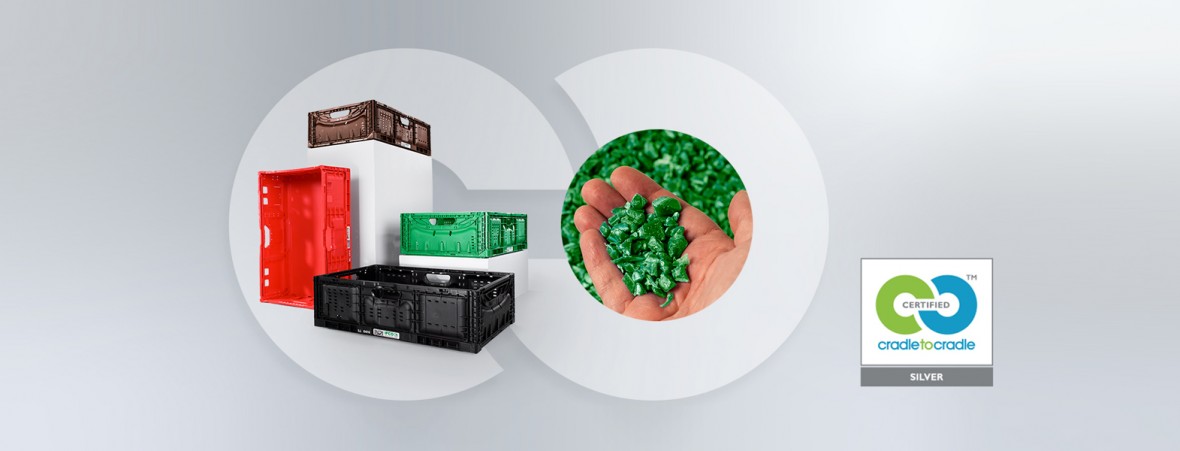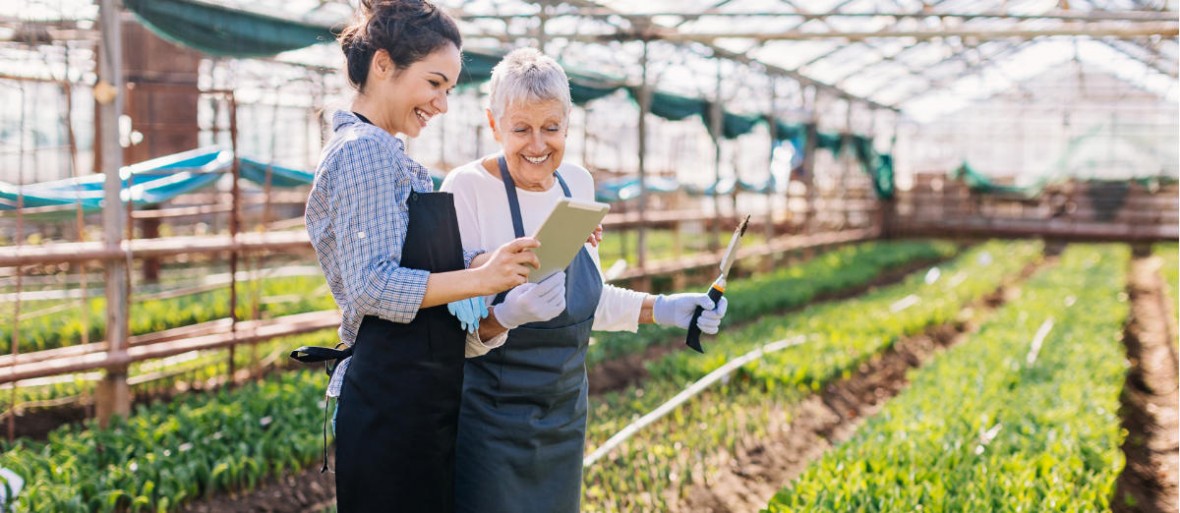I’m not exaggerating when I say that this is a proud moment for me as CEO. We are the first and only company in the world to obtain the prestigious Cradle-to-Cradle® certification for reusable containers. Our entire portfolio of European Lift Lock RPCs is Cradle to Cradle Certified® at the Silver level. And getting Gold for Material Reutilization is the icing on the cake.
This certification is further evidence that IFCO is committed to sustainable innovation and the principles of a circular economy.

By now, most business leaders acknowledge the downsides of a traditional approach to industrial design. Invariably, the conventional approach to manufacturing has been predominantly linear. Far too often, it starts with the exploitation of our natural resources — and ends with the dumping of waste in our natural world. In the middle — during production and consumption — this linear model often contaminates the environment and creates additional waste on top.
Single-use plastic packaging accounts for a large portion of such waste. The most recent figures released by the EU indicate that a staggering 14.8 million tonnes of plastic packaging waste was accumulated in the region between 2008 and 2018. The worst offender was Germany, where each inhabitant now generates an average of 227.5kg of packaging waste in a single year. In contrast, in Croatia that figure stands at average of 67.8kg per inhabitant.
This accumulation of waste can largely be blamed on the old linear approach to design. It’s why it’s also aptly named "cradle-to-grave". Although this model still dominates much of modern manufacturing, there are encouraging signs that it could also be reaching the end of its life. It is being replaced by a new model.
As the two scientists persuasively argue in their influential book, Cradle to Cradle: Remaking the way we make things, Cradle to Cradle design relies on future-oriented and forward-thinking principles. On its compostable pages (first published in 2002), Braungart and McDonough describe how cradle-to-grave became the accepted — and ultimately destructive — approach to manufacturing. They also set out how to adopt Cradle to Cradle design principles.
What are the key principles of the Cradle to Cradle model today? In a nutshell, it rejects a throw-away culture and harmful or wasteful manufacturing processes. As McDonough elegantly puts it in many of his talks, there is no "away" when you throw things away. It has to end up somewhere, and that somewhere is our environment.
Cradle to Cradle stands for innovation, quality and good design. In addition, it incorporates the safe and potentially infinite cyclical use of materials. It’s about building things with future generations in mind. And as such it aligns perfectly with my own philosophy for IFCO.
When Michael Braungart talks about the art of packaging design, he makes the same compelling arguments as we do here at IFCO. Packaging should not be seen as waste at any stage, but always as a nutrient, he argues. Either as compostable element for the natural biosphere, or as a technical nutrient for what he terms the technosphere. I must admit, I did feel immensely honored when I learned that Braungart is a big fan of our reusable containers and pooling system. They are, he told the IFCO team in a recent interview, the perfect example of how to use the right plastic for the right purpose.
“I’m a big fan of the IFCO reusable containers. They are designed with a purpose from the beginning. The system is safe, healthy and not hazardous.”
"When you are reusing and recycling material what you need to know and ensure is that all the material is safe and not in any way hazardous. And this is exactly what IFCO is doing," he says. "And this is why I’m a big fan of IFCO reusable containers. They are designed with a purpose from the beginning. The system is safe, healthy and not hazardous. What is impressive with IFCO is that you precisely define all the material streams. It’s a good and healthy system."
Braungart’s vision of a less harmful approach to industrial design is also embedded in the Cradle to Cradle Certified Product Standard that is administered by the non-profit Cradle to Cradle Products Innovation Institute, which was established in 2010. It is this institute that ranked our European Lift Lock RPCs as Cradle to Cradle Certified® at the Silver level.
What’s particularly compelling about being profit Cradle to Cradle Products Innovation Institute Cradle to Cradle Certified is that the award is not simply a snapshot of a single product at a particular point in time. The certification process involves a comprehensive audit of the manufacturing process. In addition, the certification is only awarded if the manufacturer has a clear and obvious intent to integrate circular models even further into their processes in the future.

At IFCO, we are firmly committed to improving the sustainable nature of our processes, products and services. Since our launch nearly 30 years ago, we have constantly reworked the idea of fresh food packaging: defining and refining how packaging is reused, recovered and recycled along the supply chain.
This certification confirms that our processes are innovative. The fact that IFCO Lift Lock RPCs are the only reusable containers in the world to have been Cradle to Cradle Certified® by this independent institute confirms our commitment to a sustainable food system and also recognizes our valuable role in the fresh food value chain. Most notably, designing products that are Cradle to Cradle Certified provides transparency of IFCO operations to our customers — as well as to our customers’ customers.
We welcome and celebrate this as recognition for our ongoing commitment to environment, social and governance issues across our business and the food supply chain. It demonstrates once again that we are thoroughly invested in initiatives that address climate change.
Today, the idea of a Cradle to Cradle philosophy and circular economy is becoming more widespread, thanks in part to the pioneering work of Braungart and McDonough. We’re proud that we are actively contributing to their vision of a more sustainable industrial world — and are also helping to put an end to the take-make-waste approach to design. This Cradle to Cradle certification means that our customers and our customers’ customers can be secure in the knowledge that our practices are sustainable. We are responding to climate change, and setting a high bar for environmental, social and governance issues along the fresh food supply chain.

Stay up to date
Want the latest fresh food packaging industry knowledge delivered straight to your inbox? Subscribe to our newsletter and get the latest news, trends, articles and more!
